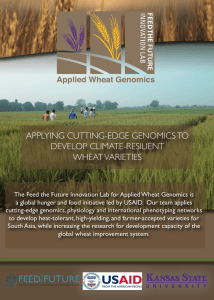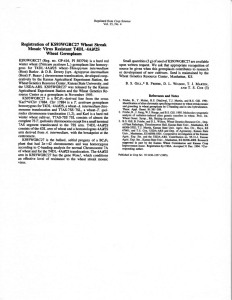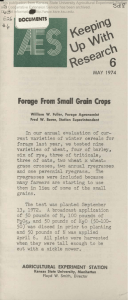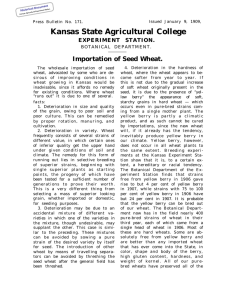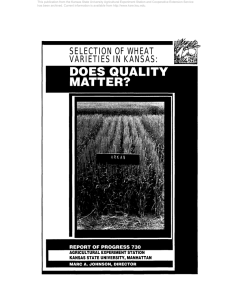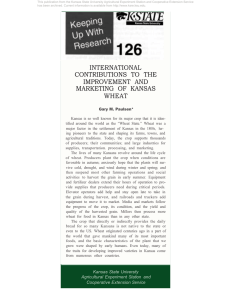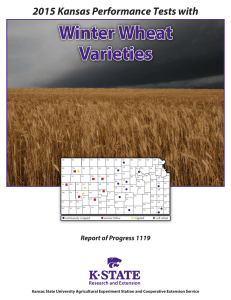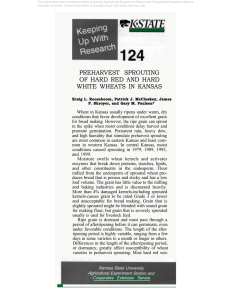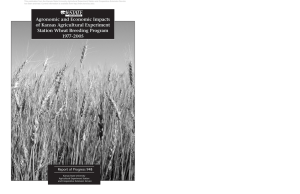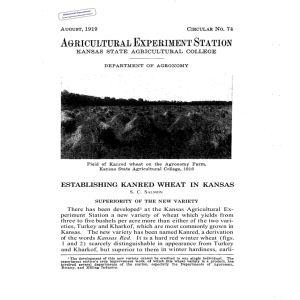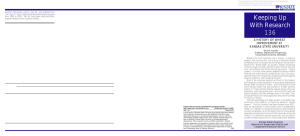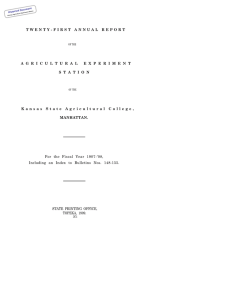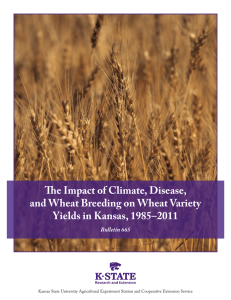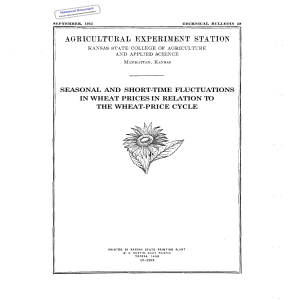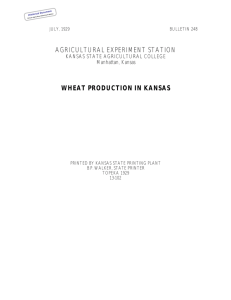Making a Difference Reducing Impact of Wheat Diseases in Kansas
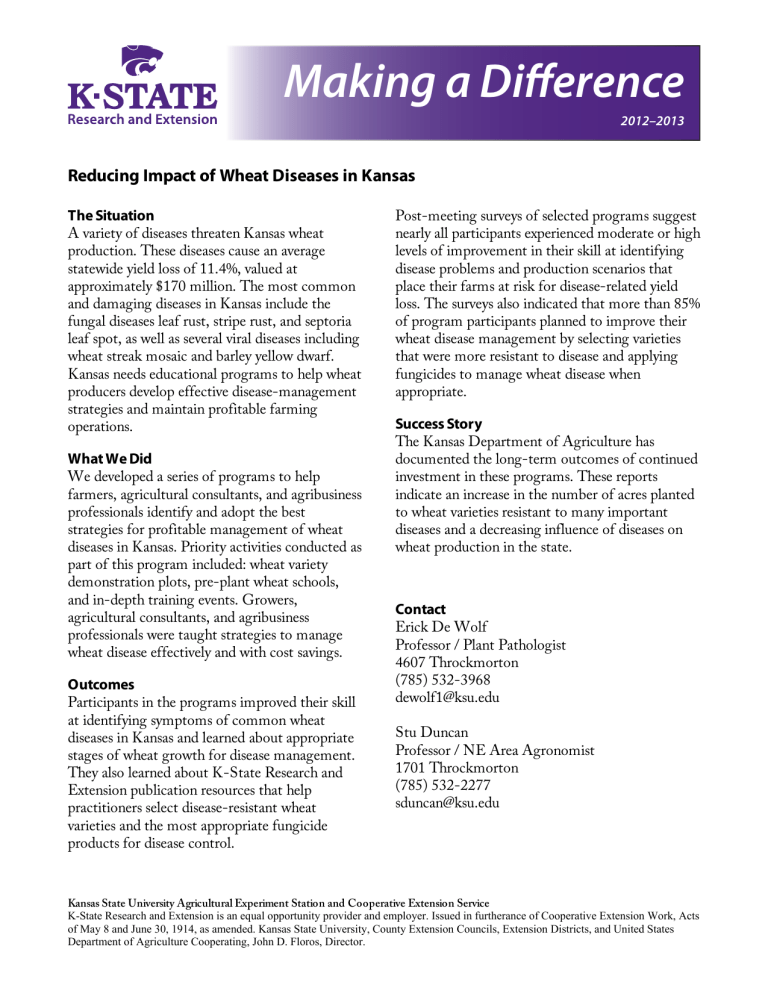
Making a Di
ff
erence
2012–2013
Reducing Impact of Wheat Diseases in Kansas
The Situation Post-meeting surveys of selected programs suggest
A variety of diseases threaten Kansas wheat production. These diseases cause an average statewide yield loss of 11.4%, valued at approximately $170 million. The most common and damaging diseases in Kansas include the fungal diseases leaf rust, stripe rust, and septoria leaf spot, as well as several viral diseases including wheat streak mosaic and barley yellow dwarf.
Kansas needs educational programs to help wheat producers develop effective disease-management strategies and maintain profitable farming operations.
What We Did nearly all participants experienced moderate or high levels of improvement in their skill at identifying disease problems and production scenarios that place their farms at risk for disease-related yield loss. The surveys also indicated that more than 85% of program participants planned to improve their wheat disease management by selecting varieties that were more resistant to disease and applying fungicides to manage wheat disease when appropriate.
Success Story
We developed a series of programs to help farmers, agricultural consultants, and agribusiness professionals identify and adopt the best strategies for profitable management of wheat diseases in Kansas. Priority activities conducted as part of this program included: wheat variety demonstration plots, pre-plant wheat schools, and in-depth training events. Growers, agricultural consultants, and agribusiness professionals were taught strategies to manage wheat disease effectively and with cost savings.
The Kansas Department of Agriculture has documented the long-term outcomes of continued investment in these programs. These reports indicate an increase in the number of acres planted to wheat varieties resistant to many important diseases and a decreasing influence of diseases on wheat production in the state.
Contact
Outcomes
Participants in the programs improved their skill at identifying symptoms of common wheat diseases in Kansas and learned about appropriate stages of wheat growth for disease management.
They also learned about K-State Research and
Extension publication resources that help practitioners select disease-resistant wheat varieties and the most appropriate fungicide products for disease control.
Erick De Wolf
Professor / Plant Pathologist
4607 Throckmorton
(785) 532-3968 dewolf1@ksu.edu
Stu Duncan
Professor / NE Area Agronomist
1701 Throckmorton
(785) 532-2277 sduncan@ksu.edu
Kansas State University Agricultural Experiment Station and Cooperative Extension Service
K-State Research and Extension is an equal opportunity provider and employer. Issued in furtherance of Cooperative Extension Work, Acts of May 8 and June 30, 1914, as amended. Kansas State University, County Extension Councils, Extension Districts, and United States
Department of Agriculture Cooperating, John D. Floros, Director.
